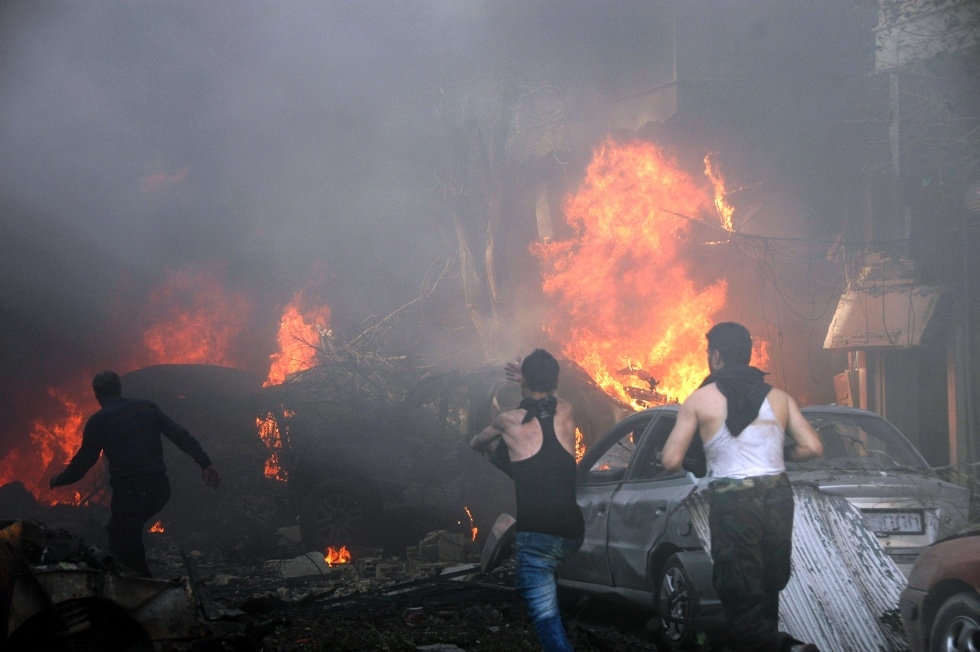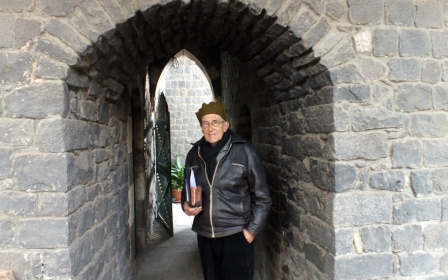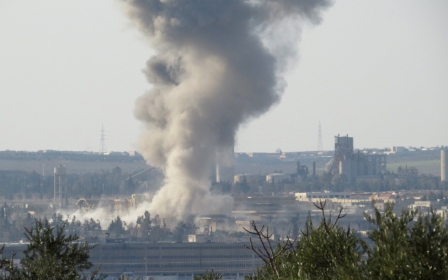UN calls for fresh negotiations following an escalation of Homs violence

UN-Arab League Envoy Lakhdar Brahimi on Thursday called on the Syrian government and opposition groups in Homs to restart talks to lift the siege on the city.
Brahimi's call to action follows a break down of negotiations between representatives of President Bashar Assad and besieged fighters late last week. The parties were working towards ending the nearly two year siege in the city.
“It is a matter of deep regret that negotiations were brutally stopped and violence is now rife again when a comprehensive agreement seemed close at hand," Brahimi said in a statement distributed at the UN headquarters in New York.
“We urge all the parties to return to the negotiating table and complete the deal which was on the verge of being signed," he added.
In the wake of the negotiation breakdown, Syrian army troops and pro-regime militias fought their way on Wednesday into rebel-held neighbourhoods of the central part of the city.
New MEE newsletter: Jerusalem Dispatch
Sign up to get the latest insights and analysis on Israel-Palestine, alongside Turkey Unpacked and other MEE newsletters
Syrian state television reported that the army and the pro-regime National Defence Forces (NDF) militia "have achieved key successes in the Old City of Homs." Troops were advancing in several neighbourhoods and had "killed a number of terrorists," it said, using the regime's term for rebels.
Rebel fighters responded to airstrikes with mortars in some of the worst violence seen in the city for months. A trapped activist, who calls himself Abu Fehmi, told AFP the army was "bombing very, very intensely."
Opposition figures and activists said the government had been negotiating a truce with the besieged fighters, but that this latest offensive showed that the regime had now opted for a violent solution to the conflict.
“The attacks by Assad’s forces in Homs have ended chances of a potential truce that could have ended the siege without any further violence. This neatly demonstrates how Assad prefers bombs over finding solutions”, Orwa Nyrabia, Syrian opposition activist and documentary filmmaker, told Middle East Eye.
Nryabia is originally from Homs and recently co-produced the film Return to Homs, which documented the lives of young Homs residents who joined the uprising. It was filmed in the city for two years from August 2011.
According to Nyrabia and other activist sources on the ground, meetings had been taking place between rebels still in Homs and Assad’s representatives over the course of the past month.
“A team of negotiators from the besieged fighters in Homs have held three meetings with representatives of Assad over the last month and agreed a deal in principle to stop the violence," Tariq al-Hussami, a former Homs resident connected to the negotiators and now living in Saudi Arabia, told MEE.
A document leaked on Facebook by the rebel’s negotiating team earlier this week says that a “blueprint deal had been agreed to bring about an end to the bloodshed” but “regime forces want to impose a security solution no matter what the barbaric consequences are."
A framework for the deal was said to have been agreed in a meeting on 10 April, which involved the remaining fighters in Homs leaving with only their personal arms. The rebels’ negotiating team were due to meet with intelligence officials on 11 April to ratify the deal, but the meeting failed to take place for unexplained reasons.
The Washington Post reported that the deal fell through because pro-government militias, who were involved in the offensive that began on Tuesday, opposed it.
The assault on Homs follows a UN operation to evacuate some 1,400 people trapped inside army-besieged neighbourhoods of the city in February. Around 1,300 people, mostly fighters, remained behind.
Homs is Syria's third city and activists have long referred to it as the "capital of the revolution" because of the huge pro-democracy protests that first broke out there in March 2011.
While protesters initially called for reforms, bloody government crackdowns soon sparked a wider uprising which eventually erupted into a civil war. At least 150,000 people are thought to have been killed and millions made homeless in the conflict which shows few signs of abating.
Middle East Eye delivers independent and unrivalled coverage and analysis of the Middle East, North Africa and beyond. To learn more about republishing this content and the associated fees, please fill out this form. More about MEE can be found here.



